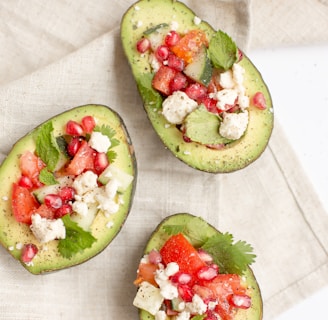Debunking Popular Diets: Keto, Paleo, Mediterranean & More
Confused by all the diet trends? This blog breaks down the most popular eating plans—Keto, Paleo, Mediterranean, Whole30, and more—highlighting what works, what doesn’t, and the myths that could be sabotaging your progress. Learn the truth behind the hype so you can choose a sustainable approach to nutrition that fits your goals.
NUTRITION
Vitae List
6/17/20253 min read


Debunking Popular Diets: Keto, Paleo, Mediterranean & More
Amazon Affiliate Disclaimer: This post may contain affiliate links. As an Amazon Associate, we earn from qualifying purchases. This helps support our content creation at no extra cost to you.
Introduction: The Truth Behind the Trendy Diets
In the world of health and wellness, diet trends come and go—but confusion often lingers. Keto, Paleo, Mediterranean, Whole30, and even plant-based diets have their advocates and skeptics. With so many conflicting opinions, it’s tough to know which one is actually effective—or sustainable. In this blog, we’ll explore the pros, cons, and common myths surrounding today’s most popular diets, so you can make informed decisions based on science, not hype.
1. Keto Diet: More Than Bacon and Butter?
The ketogenic diet emphasizes high fat, very low carb intake to shift the body into ketosis—a metabolic state where fat is burned for fuel instead of carbs.
Myths:
You can eat unlimited fat and still lose weight.
Truth: Calories still matter. Quality fats (like avocado and olive oil) make a difference.Keto is ideal for everyone.
Truth: Some people thrive on it, others experience fatigue, digestive issues, or hormonal imbalances.
Pros:
May reduce appetite and support weight loss.
Can improve blood sugar control in some individuals.
Cons:
Restrictive and hard to sustain long-term.
May lack fiber and certain micronutrients.
2. Paleo Diet: Eating Like Our Ancestors
Paleo focuses on whole foods—lean proteins, fruits, vegetables, nuts—while excluding grains, legumes, dairy, and processed foods.
Myths:
Paleo is just a meat-heavy fad.
Truth: Paleo promotes balanced whole foods, including lots of vegetables and healthy fats.Legumes and grains are always unhealthy.
Truth: Many traditional cultures thrive on diets including these, especially when properly prepared.
Pros:
Encourages whole food nutrition.
Eliminates most processed and inflammatory foods.
Cons:
Can be difficult socially and economically.
Restrictive for vegetarians or vegans.
3. Mediterranean Diet: Timeless and Balanced
This diet emphasizes whole grains, fruits, vegetables, olive oil, legumes, fish, and moderate wine—modeled after the traditional eating habits of Mediterranean countries.
Myths:
It’s a weight loss diet.
Truth: While not designed for weight loss, it often results in sustainable weight management due to its balanced nature.All fats are good fats.
Truth: While olive oil and fish are beneficial, portion control still matters.
Pros:
Backed by strong evidence for heart health and longevity.
Flexible and sustainable long-term.
Cons:
May be less effective for rapid weight loss goals.
Wine intake is not for everyone and should be approached cautiously.
4. Whole30 and Elimination Diets
Whole30 cuts out sugar, grains, dairy, legumes, and alcohol for 30 days to identify food sensitivities.
Myths:
It’s a forever plan.
Truth: It’s designed to be temporary—a reset, not a lifestyle.Weight loss is the main goal.
Truth: The primary aim is understanding how foods affect your body.
Pros:
Great for identifying food sensitivities and resetting habits.
Encourages mindfulness in eating.
Cons:
Highly restrictive and can be difficult to follow.
Risk of disordered eating if misunderstood.
5. Plant-Based and Vegan Diets
These diets focus on fruits, vegetables, legumes, whole grains, nuts, and seeds—minimizing or excluding animal products.
Myths:
You can’t get enough protein.
Truth: It’s possible to meet protein needs with plants, though it takes planning.Vegan equals healthy.
Truth: Processed vegan foods can be just as unhealthy as processed omnivore foods.
Pros:
Linked to reduced risk of chronic diseases.
Environmentally sustainable.
Cons:
Risk of nutrient deficiencies (B12, iron, omega-3s).
Requires intentional meal planning.
Final Thoughts: Choose What Works for You
No diet is perfect for everyone. Your lifestyle, goals, preferences, and health history should all play a role in deciding what works best. Instead of chasing the latest trend, aim for a sustainable, nutrient-rich way of eating that you can stick with long-term. Whether you borrow elements from keto, go mostly Mediterranean, or blend a few philosophies, the key is listening to your body and eating with intention.
